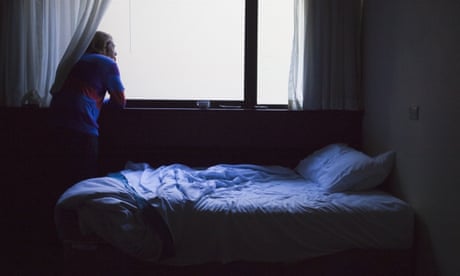- by foxnews
- 08 Apr 2025
Experts decry Labor’s ‘appalling’ plan cut to number of Medicare psychologist sessions
Experts decry Labor’s ‘appalling’ plan cut to number of Medicare psychologist sessions
- by theguardian
- 14 Dec 2022
- in news

The federal government is under pressure to scrap controversial plans to halve the number of annual Medicare-backed psychologist appointments, amid claims it has disregarded a key finding of the top level report it relied upon to justify the decision.
The health minister, Mark Butler, maintains reform of the Better Access system is needed, saying the former government's model led to ballooning wait times and denied access to new patients and those on low incomes.
Butler on Monday released a University of Melbourne review of the Better Access initiative, which offers 10 psychologist sessions annually under Medicare. The scheme was expanded early in the pandemic to offer 20 sessions. However Butler said the additional 10 sessions would end this year after the review found "gaps are widening" in the system, claiming it "aggravated" waiting lists and barriers to access.
According to the review, lower-income Australians had twice the levels of high mental distress of wealthier people, but those on low incomes were the least likely to access help and all indicators had worsened over time. The provision of the extra 10 sessions was due to come to an end this year under the former government's plans and Butler said on Monday Labor would not extend that timetable.
But peak body the Australian Association of Psychologists has pointed out the review had actually recommended that "the additional 10 sessions should continue to be made available and should be targeted towards those with complex mental health needs".
The executive director, Tegan Carrison, said the logjam could be addressed by the government providing larger rebates to psychology clients, widening access.
"This decision is a backwards step that will harm the most vulnerable. To cut back session numbers in the thick of a mental health crisis will have a detrimental impact," she said.
Butler said the government would organise a forum with representatives of vulnerable groups early in 2023, to discuss the review's findings and how to "preserve the benefits of this program" by making benefits more equitable. He said the government recognised "fragmentation" in the mental health system but indicated nuances in the changes to be made.
"The evaluation recommended making the additional 10 sessions available to those with complex mental health needs, however the evaluation was not conclusive around how this could be targeted. It noted a nuanced and stepped approach was needed, for this reason we're promptly convening a forum to assess reform options with the sector," he said.
"Many Better Access providers are currently at capacity, limiting access to supply. The Australian government is committed to expanding the range and supply of psychological services for everyone, but this ultimately will involve building the mental health workforce and developing new digital and direct models of service."
Dr Michael Carr-Gregg, a child psychologist called the changes "appalling", suggesting on 3AW radio that Butler should resign. He tweeted that not extending the extra appointments "will harm mental health of young people who are still suffering after lockdowns".
Other mental health experts, however, backed the change and said the Better Access system needed wholesale reform.
Executive director and chief scientist at the Black Dog Institute, Prof Sam Harvey, told Sky News that the changes could see shorter waiting times and more people able to make appointments. Senior Principal Research Fellow of the University of Sydney's Brain & Mind Centre, Prof Ian Hickie, tweeted that new models of care were "urgently required".
The CEO of mental health organisation Sane, Rachel Green, said waiting lists and gap fees needed overhaul, saying the Better Access system was not serving its full purpose and that governments needed to better resource the sector.
"While the Better Access program has served us well, we must acknowledge that an optimal mental health care system must include more than a series of isolated, clinical interventions," said Green.
"We agree with Ministers Butler and [assistant mental health minister Emma] McBride that it is time to take a critical look at how resources are currently distributed in the mental health system."
Senator David Pocock called for the government to reverse course, saying the mental health system needed more funding, not less. He said the government should, at the least, pledge to reinvest back into the system any cost savings from cutting Medicare-backed appointments.
"We are still in the midst of a mental health crisis, now is not the time to be removing funding without a solid plan to address the significant issues with our mental health system," said Pocock.
The shadow health minister, Anne Ruston, claimed the move was about cost-cutting.
- by foxnews
- descember 09, 2016
Ancient settlement reveals remains of 1,800-year-old dog, baffling experts: 'Preserved quite well'
Archaeologists have recently unearthed the remarkably well-preserved remains of a dog from ancient Rome, shedding light on the widespread practice of ritual sacrifice in antiquity.
read more


